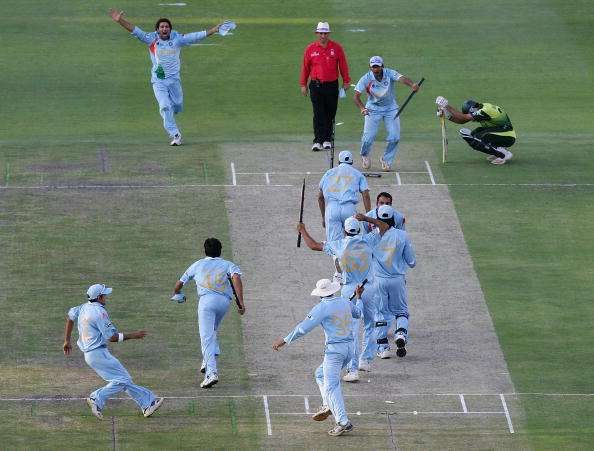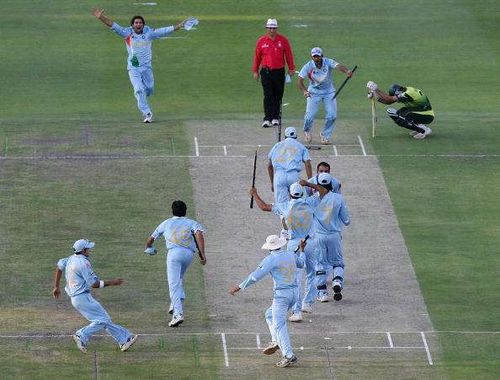
Why the India vs Pakistan match today will be a battle of anxieties
It is the most anticipated day in the 12-day long 2016 Asia Cup. It's India vs Pakistan and no matter which part of the world it is played, it just makes everybody stop their work and get glued to their television.
Over the years, there have been some great contests, but even more significantly, a lot of them have been played in good spirits. Critically, the fans from both nations have also learnt to respect any verdict that has come out in such matches.
There have been few stories in the past of adverse reactions from the common public, but it seems now that most, if not all, treat it just like how it should be: A contest between bat and ball and two teams giving their best.
In recent ties, India has had a wood over Pakistan, at least in multi-nation events. The win in last year’s World Cup, prior to that the triumph in the World T20 in 2014, the 2013 Champions Trophy win are some instances.
There has been one common line used in every Indo-Pak affair for the longest of times, which is that it would be India’s batting vs Pakistan's bowling. In a recent interview with a magazine, Wasim Akram was asked why is it that one nation continue to churn one super batsman after another and why the other continues to produce fast bowlers and he replied by saying,” That's a zillion-dollar question” and added that maybe it’s in the culture of the two countries.
However, in recent history, India have dominated over Pakistan not just with bat or ball, but in another vital aspect, which is in the mind. It always seems as though the latter have always come into such encounters with an extended level of anxiety.
There is no doubting the fact that the stakes in such games are higher than usual, but Pakistan somehow allow that pressure to get to them and disturb them from playing normally.
It would be wrong to say that India doesn't come into such matches under pressure themselves. But the difference here is that they soak in the anxiety and keep a still head at all times.
One of the better examples of the second trait that I mentioned above was seen in 2007 World T20 final. India were 130 for 6 in 18 overs when a 20-year-old Rohit Sharma played the cameo that tilted the momentum in his side’s favour.
The key thing about that knock was barring the 1st ball of the 18th over when he slogged Yasir Arafat towards mid-wicket, the rest were just common sense cricket. He moved leg-side and dabbed a ball for four through third man and in the last over, anticipated a slower ball terrifically from Sohail Tanvir and hit it for a six.
On the contrary, Shahid Afridi walked into bat, in what was perhaps the biggest day of his career, with his side 76 for 4 in the 12th over and off his very second ball from Irfan Pathan, tried to hit a ball out of Johannesburg, only to be caught by Sreesanth and head back for a duck.
All it required of Afridi in such a scenario was to remain still, something the Misbah Ul-Haq showed later on in the same match, until at the last moment, he too lost his head. The former displayed that quality in the following edition when he played a mature knock to guide his side past the finish line against Sri Lanka at Lord’s.
There are other examples when the Men in Green have lost the plot, not because of a lack of talent or anything of that sort, but because they haven't been able to accommodate any more air in the balloon and, as a result, busted under its sheer size.
The Dhoni factor in Indo-Pak
India has been very fortunate in one regard for a long time now, which is in MS Dhoni, it has a skipper, who has not just been a long-standing one, but someone who treats cricket just how it's meant to be: Like a game.
In that sense, Pakistan has struggled because of the amount of marshalls that have changed guard in the time gone by and each of them have failed to take hold of that pressure.
I can't think of any other skipper who would have come out and said a line that Dhoni did after the win in Adelaide last year. He was asked about his team’s winning run against their neighbours in the marquee event and his reply was:
”The record is good, but it is something that I don't want to get into because there will come a time when we will lose, irrespective of whether it happens this World Cup, next World Cup or four World Cups down the line. It is not something that will stay until the world exists. No point in really thinking about it.
Could you have imagined any other Indian skipper to have come out with such a statement? This is India-Pakistan right, where anything less than a win is considered cruel.
The statement is a reflection of not just his want to win, but also his ability to not get carried away by the past or the future and most importantly remain in the present. It is about that day for him and it's a message that he will most certainly drive into his players on Saturday and hopefully, provide the fans with some late-night cheer.
